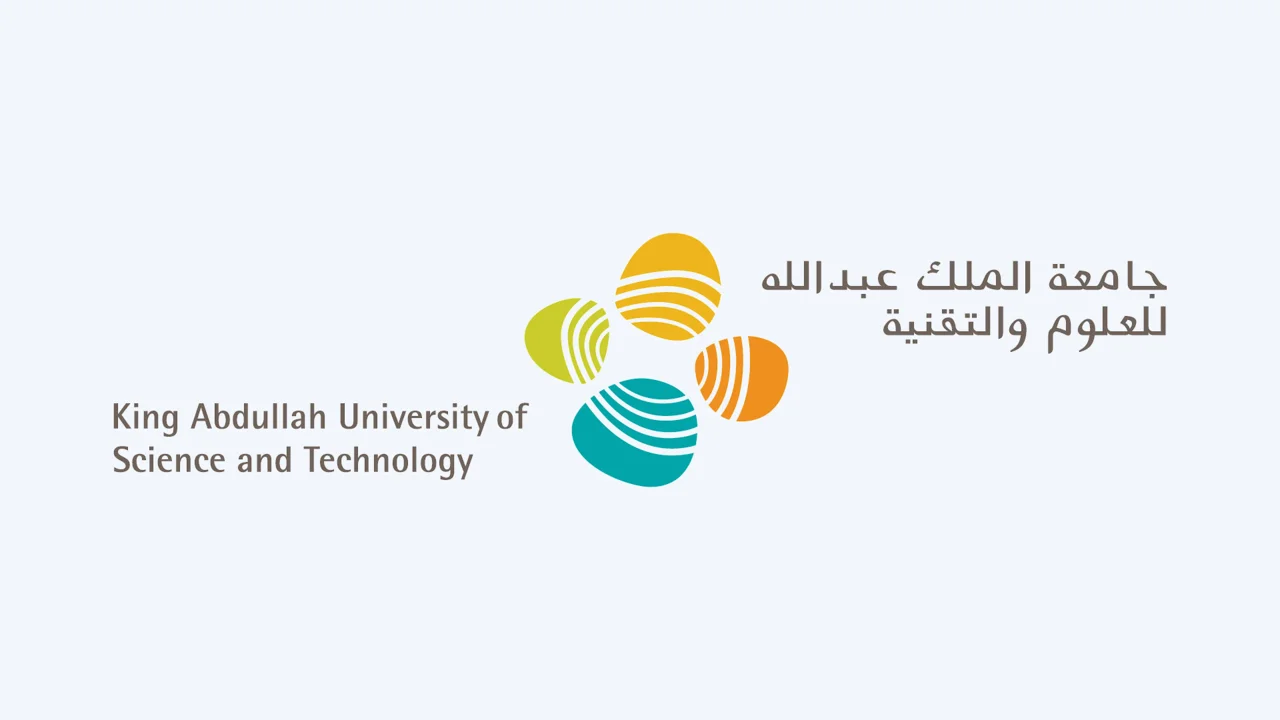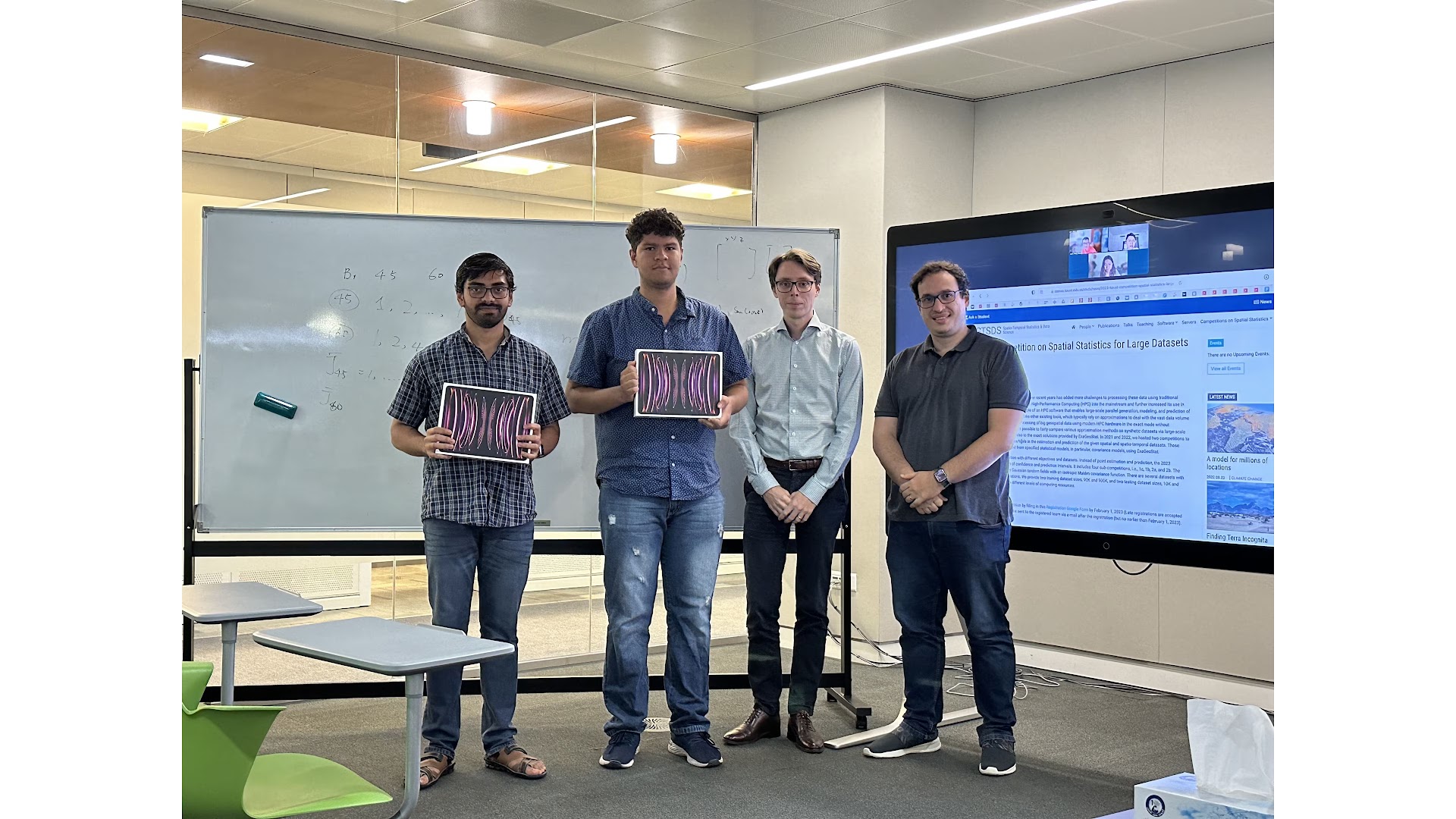
2023 KAUST Competition on Spatial Statistics for Large Datasets
Overview
Introduction
The rapid increase in the volume of geospatial data over recent years has added more challenges to processing these data using traditional methods. Thus, geospatial applications have brought High-Performance Computing (HPC) into the mainstream and further increased its use in the spatial statistics field. ExaGeoStat is one example of an HPC software that enables large-scale parallel generation, modeling, and prediction of large geospatial data via covariance matrices. Unlike other existing tools, which typically rely on approximations to deal with the vast data volume on day-use machines, ExaGeoStat allows the processing of big geospatial data using modern HPC hardware in the exact mode without approximation. Therefore, ExaGeoStat makes it possible to fairly compare various approximation methods on synthetic datasets via large-scale simulations, not only to the true models but also to the exact solutions provided by ExaGeoStat. In 2021 and 2022, we hosted two competitions to assess the performance of existing methods/tools in the estimation and prediction of the given spatial and spatio-temporal datasets. Those datasets were synthetic datasets generated from specified statistical models, in particular, covariance models, using ExaGeoStat.
This year, we are hosting a third competition with different objectives and datasets. Instead of point estimation and prediction, the 2023 competition focuses on the construction of confidence and prediction intervals. It includes four sub-competitions, i.e., 1a, 1b, 2a, and 2b. The datasets were generated from stationary Gaussian random fields with an isotropic Matérn covariance function. There are several datasets with various designs of irregularly spaced locations. We provide two training dataset sizes, 90K and 900K, and two testing dataset sizes, 10K and 100K, to accommodate participants with different levels of computing resources.
Getting Started
Participants should register for the competition by filling in this Registration Google Form by February 1, 2023 (Late registrations are accepted until April 1, 2023). The datasets links will be sent to the registered team via e-mail after the registration (but no earlier than February 1, 2023).
Timeline
Registration is open until April 1, 2023 May 1, 2023 (Firm deadline). All submissions should be received by 11:59 pm (UTC±00:00) on April 1, 2023 May 1, 2023. You can use this Results Google Form to complete your submission.
Instructions
More information about the competition can be found here: competition_description.pdf.
Final Rankings
(May 15, 2023)
The winners of each of the four sub-competitions are as follows:
The winner of Sub-competition 1a:
HCSY
Hao-Yun Haung, National Tsing Hau University Institute of Statistics, Taiwan.
Zih-Bing Chen, Institute of Statistical Science Academia Sinica, Taiwan.
Eric Sun, National Yang Ming Chiao Tung University Institute of Statistics, Taiwan.
Cheng-Xin Yang, Institute of Statistical Science Academia Sinica, Taiwan.
The winners (ties) of Sub-competition 1b:
Stochproc
Simon Pedro Galeano Munoz, Statistics Program, KAUST.
David Bolin, Statistics Program, KAUST.
Alexandre de Bustamante Simas, Statistics Program, KAUST.
DesiBoys
Rishikesh Yadav, HEC Montreal, Canada.
Pratik Nag, KAUST, Saudi Arabia.
Arnab Hazra, IIT Kanpur, India.
The winner of Sub-competition 2a:
DesiBoys
Rishikesh Yadav, HEC Montreal, Canada.
Pratik Nag, KAUST, Saudi Arabia.
Arnab Hazra, IIT Kanpur, India.
The winner of Sub-competition 2b:
UOW
Yi Cao, University of Wollongong, Australia.
Alan Pearse, University of Wollongong, Australia.
Bao Vu, University of Wollongong, Australia.
Andrew Zammit-Mangion, University of Wollongong, Australia.
Xiaotan Zheng, University of Wollongong, Australia.
Datasets
N/A
Contact
If you have any questions about this competition, you can contact us at kaustcompspat@gmail.com.
Award Ceremony: May 18th, 2023
Stochproc and DesiBoys
